If you have a dog, chances are you’ve noticed they like to spend time alone. While it can be tempting to assume that your pup is being anti-social or doesn’t want your company, there may be more reasons why they prefer their own space. Understanding why dogs need alone time and what behaviors indicate this desire can help strengthen the bond between pet and owner. So why does my dog want to be alone? Let’s explore some of the possible explanations for this behavior.
Do Dogs Need Time Alone?
Yes, dogs do need time alone. This can be especially true if they are in a crowded environment with multiple other people and animals. Dogs also require moments of peace and quiet to relax and process their thoughts. In addition, some dogs may have an inherent need for independence that drives them to seek out solitary activities such as sleeping or exploring different areas of their environment.
Signs A Dog Wants To Be Left Alone
If your dog is exhibiting some of the following behaviors, it may indicate that they would prefer to be left alone:
They Growl When You Touch Them
Growling is a universal sign of warning from dogs. It indicates that the dog doesn’t like something or someone and wants to be left alone. If your dog shows signs of aggression such as growling, it might mean they want some space and don’t want to be disturbed.
Your Pooch Is Hiding From You
It may be surprising to learn that your beloved pup is actually trying to distance himself from you. After all, they’re usually our most loyal companions and can’t wait to get our attention. But sometimes dogs seek out alone time for a good reason. There are lots of causes why your dog might want to be alone and it’s important to try to understand why. Some of the most common causes could be anxiety, fear, illness, physical discomfort, or being overwhelmed by too much stimulation. If your dog is seeking out quiet corners of the house away from people and other animals, they may be feeling nervous or scared. It could also be a sign of depression, which is caused by a lack of socialization or change in routine. If your pup has been behaving differently lately, it’s a good idea to take them to the vet so they can rule out any underlying medical conditions.
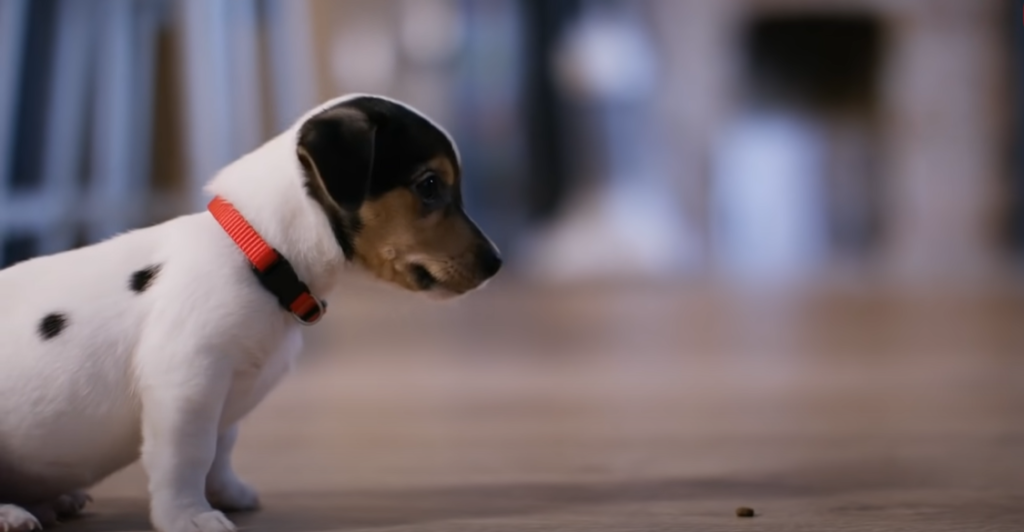
Your Pooch Wants To Leave Home Without You
It seems like your pup would rather be alone most of the time, and that can be confusing for pet owners. After all, it feels like if a dog truly loves its human companion, why wouldn’t they want to spend as much time with them as possible? The truth is, dogs do enjoy spending time with their owners, but they also need space and alone time to relax and reset. [1]
Reasons Why Your Dog Suddenly Wants To Be Alone
There are a few different reasons why your dog might suddenly become more independent and start wanting to be alone.
Anxiety
One of the most common causes of a dog wanting to be alone is fear, anxiety and stress. Dogs, like humans, can experience these emotions when they feel threatened or overwhelmed in a situation that they cannot escape from. If your dog starts seeking out solitude more often than usual, it’s possible that something has caused them to feel anxious or stressed.
Depression
One possible explanation for why your dog may seem to want to be alone is depression. So, what causes a dog to become depressed? Dogs can experience depression for many of the same reasons that humans do—due to changes in their environment or routine, past trauma, pain or illness, and even genetics. If you think your dog may be suffering from depression, it’s important to speak with a veterinarian as soon as possible. With proper treatment and care, your dog can experience relief from their depressive symptoms and be able to enjoy life again.
Other Health Issue
In addition to the more common behavioral reasons, there may be underlying medical issues that can cause a dog to become withdrawn and want to be alone. Health problems can lead to changes in behavior and an overall decrease in social interaction. Dogs who have something wrong may opt out of playtime and instead choose quiet time alone. Painful medical conditions can make a dog want to curl up in a quiet corner and rest rather than seeking out attention or companionship. Dogs who are feeling unwell may also go off their food, withdraw more than usual, and even become grumpy if disturbed.
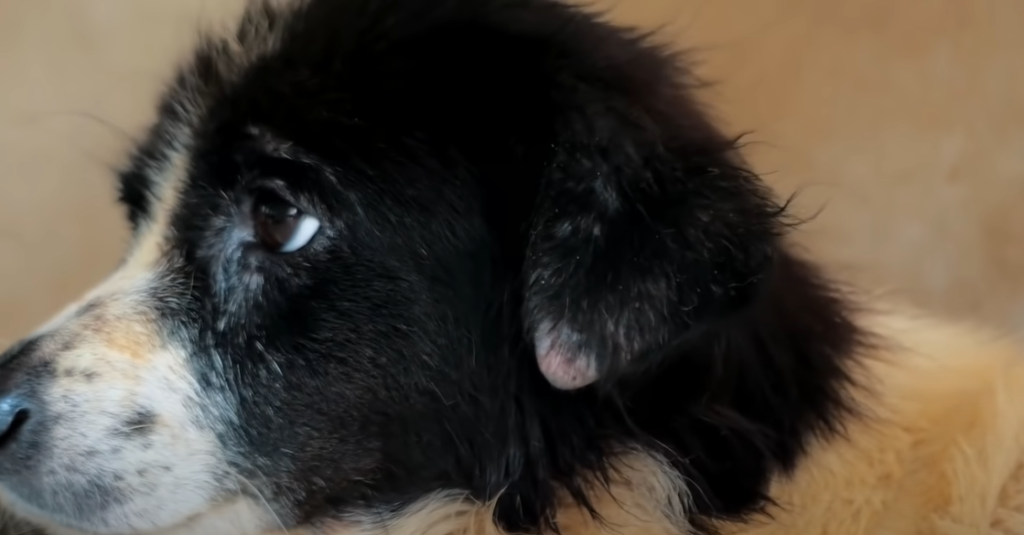
Physical Or Emotional Pain
If your pup suddenly starts wanting to be alone, physical or emotional pain could be the culprit. Look for signs such as limping, favoring one side of their body, decreased appetite or any other abnormal behaviors. If you suspect that your pooch is in pain, take them to the veterinarian right away. Even if there isn’t an obvious physical cause, there could be an emotional one. Dogs can experience anxiety or depression, just like humans do. If your dog is exhibiting signs of these issues, such as pacing, destructive behavior or excessive sleeping, you should take them to the vet for a checkup.
Age
One of the most common reasons why a dog may want to be alone is because they are getting old. As dogs age, their energy levels and physical capabilities decline, which results in them feeling less energetic and motivated to interact with others. Additionally, older dogs often suffer from medical complications that can cause discomfort or pain when touched or handled too roughly. When these issues are present, a dog may prefer to be alone in order to avoid the extra stimulation and discomfort. [2]
What Do Dogs Do When They Are On Their Own
When dogs are left to their own devices, they engage in a variety of activities. They might sleep, explore the yard or house, chew on toys and treats, bark at passersby, or even groom themselves!
They May Nap
One of the most common things dogs do when they are alone is nap. Dogs may also sleep when company is present, but it’s not as common and won’t last as long. This can be a sign that your dog needs some quiet time to relax and reset.
They May Play
Dogs may seem like social animals, but they also need some time to themselves just like humans do. Dogs have different levels of comfort when it comes to being around other animals or people and they may need time to process what is going on in their environment. When a dog wants to be alone, it may be because they are feeling overwhelmed or need some time to relax. Dogs can also become easily bored if they are forced to stay in one place too long without stimulation. This can lead them to seek out their own corners of the house where they can sleep and relax. Dogs may also want some alone time because it helps them to better observe their environment and stay alert for any potential danger. Finally, dogs may just want some time away from people or other animals as a way of expressing independence and asserting their own dominance in the home.
They May Be Destructive
Dogs who are left alone for too long or don’t get enough exercise may develop destructive behaviors. Chewing, digging and barking are common outlets for a bored pup whose human isn’t around to entertain them. If your dog seems to be lonely or anxious when left alone, try adding more walks and playtime into their routine and make sure they have plenty of toys to keep them occupied. [3]
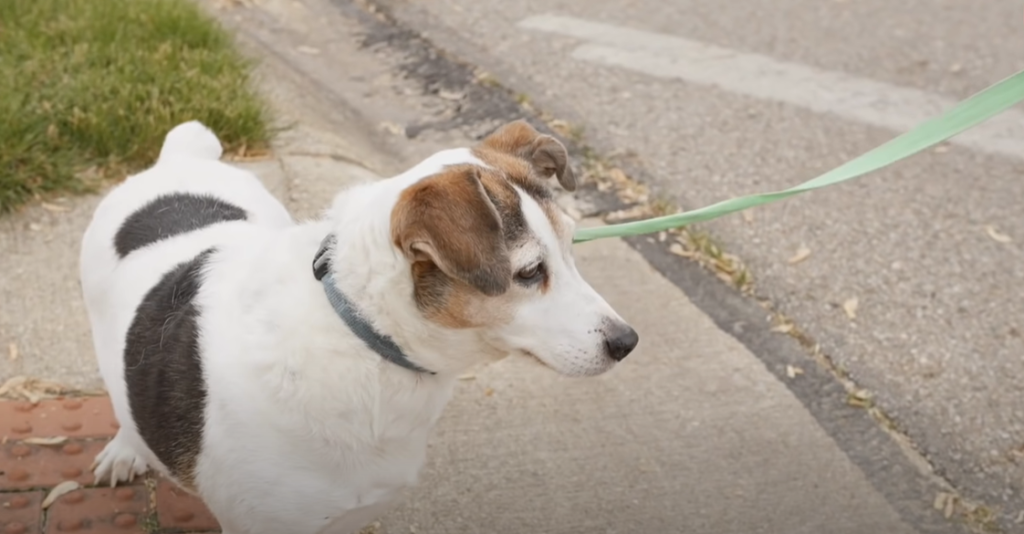
What You Can Do To Help
If your dog has become withdrawn or reclusive, there are some things you can do to help him feel more comfortable being around people. Firstly, create an environment where your pup feels safe and secure. Make sure he has a quiet place where he can retreat when he needs some time to himself. Give him plenty of chew toys and treats so he has something to focus on when he is alone.
Make Sure Their Environment Is Clean And Comfortable
If your dog is feeling overwhelmed and lonely, the first thing you can do is to make sure their environment is clean and comfortable. Make sure their bedding or crate is free of dirt and debris, and provide them with toys and treats that will help keep them entertained. You can also give them a safe space in the house where they can go to relax and feel secure.
Help Their Mental Health
In addition to physical health issues that may be causing your pup to want to spend more time alone, there are also mental health factors that could be playing a role. Just like us, dogs need downtime and solitude in order to stay mentally healthy. Dogs can get overwhelmed after being around people and other animals for too long, so giving them some alone time can help them to decompress and reinvigorate their energy. Additionally, if your pup is experiencing anxiety or fear due to a traumatic experience, being alone may be the only way they feel safe enough to relax.
Ensure That It Is Eating Correctly
A poor diet can be a major factor in why a dog might want to be alone. Dogs need healthy, balanced meals with just the right mix of fats, proteins and carbohydrates. A lack of essential nutrients may leave your pup feeling lethargic, moody and unwilling to engage with anyone around them – including you! Make sure that you are feeding your dog a nutritious diet and providing them with plenty of fresh water. [4]
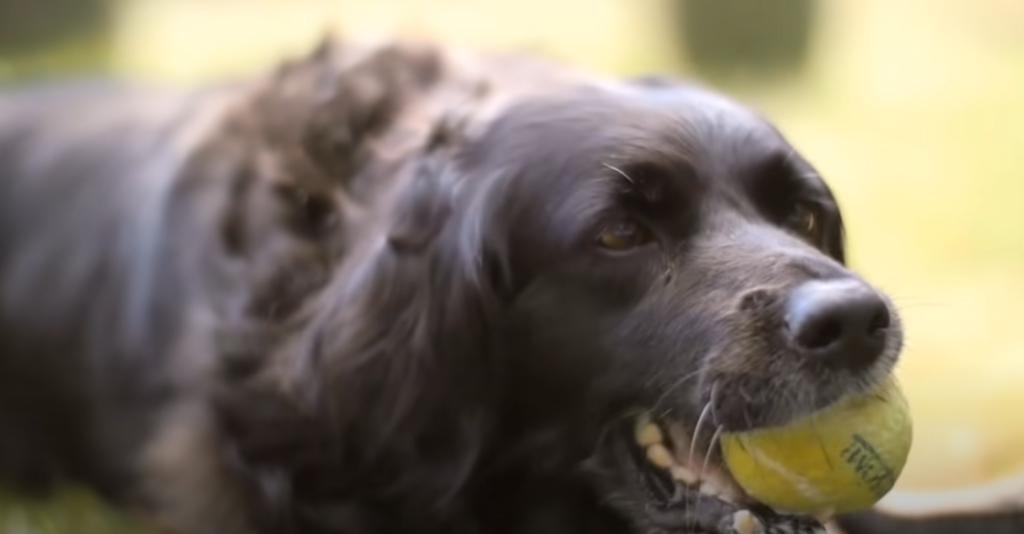
FAQ
Why is my dog suddenly isolating himself?
There are a few potential reasons why your dog may be isolating himself. It could be due to health issues, such as pain or illness. It could also be due to changes in their environment that make them feel uncomfortable or unsafe. Anxiety and fear can also lead to isolation behaviors in dogs. If there have been recent changes in the home, such as a new pet, a family member moving away, or changes to the household dynamic, this could be triggering anxiety in your dog. Finally, age can also lead to isolation in dogs. As they grow older, they may become more comfortable being alone and not engaging in active social play. If you are concerned about your dog’s behavior, it is always best to consult with a veterinarian or qualified behavior specialist. They can help identify the underlying cause of your dog’s isolation and provide advice on how to address it.
Why does my dog not want to be near me?
Dogs are social animals and usually love being around people. However, there can be a few reasons why your dog may not always want to be near you. The first possibility is that the dog is feeling stressed or anxious about something, such as a new person in the house or an unfamiliar environment. Dogs that feel overwhelmed by their environment can become withdrawn and want to be alone. It could also be that your dog is trying to avoid something like a loud noise or an uncomfortable situation, such as some physical contact. It’s important to watch for signs of stress in your pet, such as pacing, panting, excessive barking or whining, trembling, hiding, and cowering. Another possibility is that your dog may be trying to communicate something to you, like feeling territorial or jealous of another pet in the house.
Dogs can also become uncomfortable with too much physical contact and may need more space than usual, especially if they are not used to being around a lot of people. To help your dog feel more comfortable, make sure to provide a safe and comfortable environment for them, with plenty of toys and treats. Give your pet plenty of space when they are feeling anxious and show lots of patience when they are trying to tell you something.
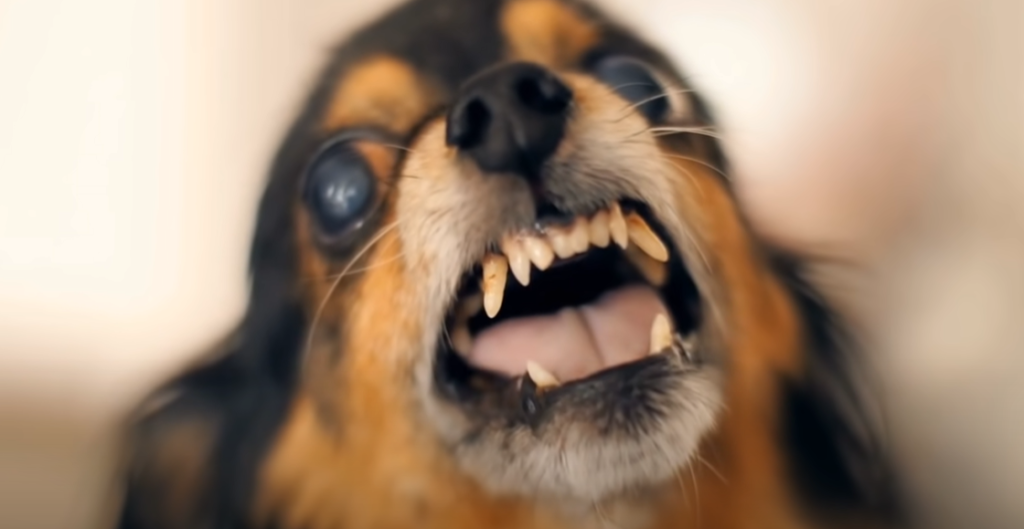
How do I get my dog to stop being alone?
The first step in trying to get your dog to stop being alone is to try and identify what is causing the behavior. Some common causes for a dog wanting to be alone are anxiety, depression, or boredom. It’s important to understand why your pup is feeling this way so that you can effectively address it. Once you have identified the underlying cause, you can then take steps to help your dog feel more comfortable and secure.
Also, consider providing your pup with more mental and physical stimulation. Providing toys and puzzle feeders can help keep them entertained when you’re away, while regular walks and playtime with other dogs can help to alleviate social anxiety and boredom. Creating a secure environment for your pup can also make them feel safer, so try setting up a safe space in the home where they can go when feeling stressed or scared. Finally, don’t forget to spend quality time with your pup when you are home. Showing them lots of love and affection will help them to feel more secure in the relationship and make it less likely that they’ll seek solace in being alone.
Do dogs want to be alone sometimes?
Yes, it’s perfectly normal for a dog to want to be alone sometimes. Dogs are social animals and need companionship, but just like humans, they also need time away from others in order to relax and recharge. Just like us, dogs can become overwhelmed by too much stimulation or interaction with people and other animals. This can lead to a need for some alone time.
There are several reasons why your dog may want to be alone, including feeling unwell or stressed, being bored or anxious, or simply needing space and quiet. It’s important to recognize when your dog is trying to tell you that they need some alone time, as it can help them to stay happy and healthy. In some cases, your dog may be trying to tell you that something is wrong. If your dog suddenly starts avoiding human contact or withdrawing from the family, it could be a sign that they’re feeling unwell or stressed.
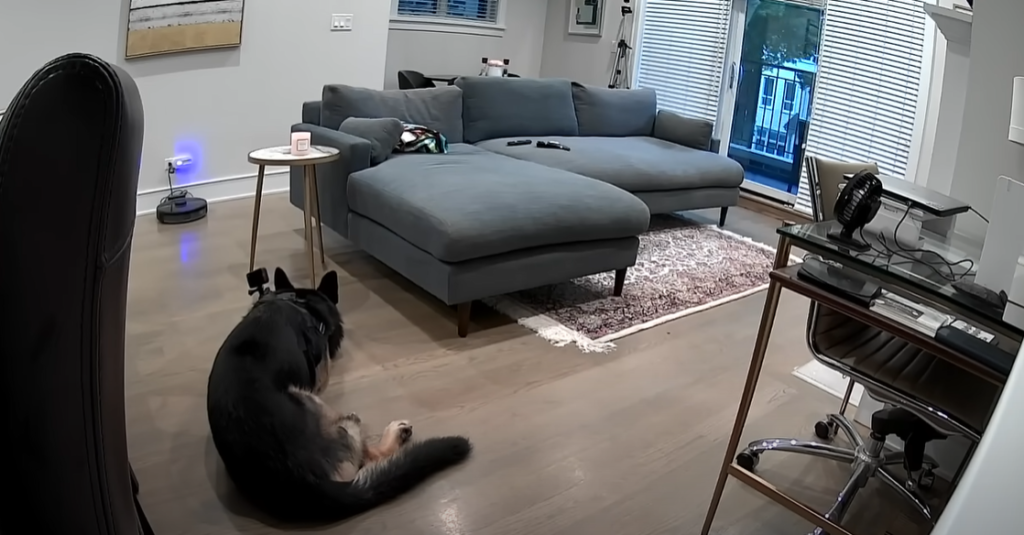
Why is my dog acting sad and distant?
It is normal for a dog to want some time alone. Dogs are naturally independent and social animals, so they need time to explore their surroundings and take part in activities that keep them interested and entertained. However, if your dog is regularly acting sad or distant, there may be something more serious going on. It’s possible that your pet is experiencing depression, boredom, or separation anxiety. Depression can be caused by a number of factors, including the death of another pet or family member, changes to their routine or environment, chronic illness or pain, and even low self-esteem. If your dog’s behavior has recently changed and they are isolating themselves more than usual, it is important to talk to your veterinarian and work on finding the underlying cause.
What are the signs that your dog doesn’t like you?
Your dog may exhibit signs of not wanting to be around you, such as avoiding your gaze, hiding from view when you enter the room, lying on the floor looking away from you and showing other signs of discomfort. Other signs that your dog may not like spending time with you include refusing to come when called, displaying aggressive behavior towards you or your family, or showing signs of fear and anxiety when you are around. Worth noting is that these are all signs of a fearful or anxious dog, and it can be difficult to distinguish between a loving dog that just likes its alone time and one that genuinely doesn’t like your presence.
How do you know if your dog is depressed?
If your dog is showing signs of depression, it’s important to take action as soon as possible. Common symptoms of canine depression include listlessness, lack of interest in activities or people they used to enjoy, sleeping more than usual, loss of appetite and weight loss, excessive licking or chewing on themselves, acting agitated or anxious and exhibiting clingy behavior.It may be hard to tell if your pup is just feeling a bit down or if they’re clinically depressed, so it’s best to consult with a veterinarian to rule out any physical causes for their symptoms. Once medical issues are ruled out, the vet can recommend behavioral or medicinal therapies that might help treat your pup’s depression.
Why won’t my dog come to me anymore?
It can be disheartening when your dog, who used to rush to greet you with excitement, now looks away and avoids eye contact. If your pup is shying away from physical touch or social interaction with you, it could be a sign that something is wrong. It’s important to understand why your pet might want to be alone so that you can provide the best care possible.
There are several common causes of a dog seeking isolation, ranging from physical to psychological issues. Physical pain or discomfort is one of the most frequent reasons why your pup might want to be alone or show signs of irritability. If your pet has recently been injured in any way, they may avoid social interaction until they feel better.
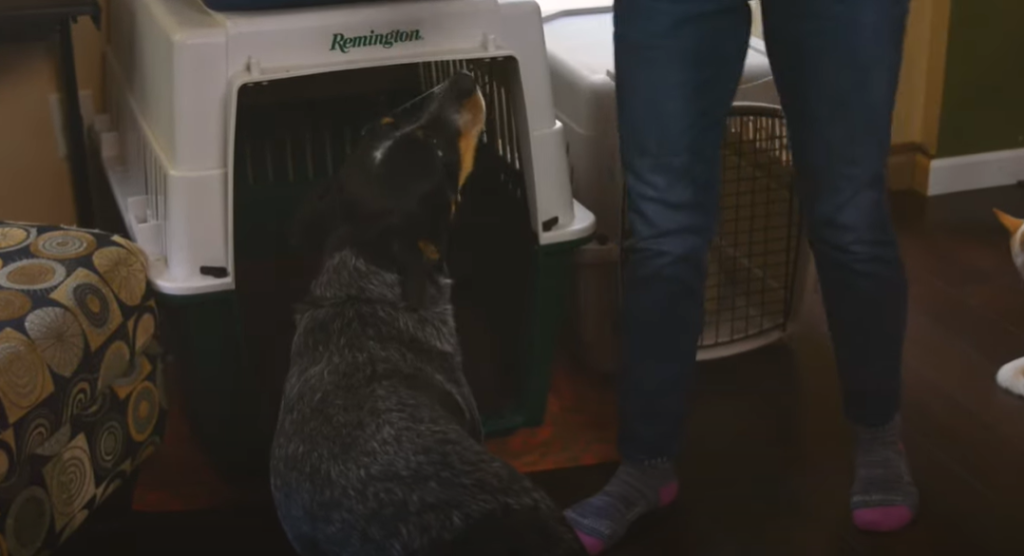
Is my dog happy being the only dog?
Dogs are social animals, which means they like to interact with other dogs, people and animals. As such, it’s not natural for a dog to want to be alone all the time. If your dog is constantly seeking out solitude and avoiding interactions with humans or other animals, this could be an indication that something else may be going on that needs to be addressed. It’s important to get to the root of why your dog is acting in this way, as it may point to a more serious underlying issue. Possible causes for your dog wanting to be alone include:
- Feeling anxious or stressed due to changes in their environment, such as a move or the addition of a new pet.
- Experiencing discomfort from an injury or medical condition.
- Feeling neglected due to lack of attention, exercise, or proper training.
If you’re concerned that your dog is feeling lonely or isolated, there are several things you can do to help them feel more secure and comfortable in their environment. Spend quality time with your dog, providing them with ample interaction and affection. Make sure they are getting enough exercise and mental stimulation throughout the day.
Do dogs get depressed if left alone?
For many dog owners, it can be concerning to see their beloved pet want to be alone and not seek out attention. While some dogs may appear withdrawn or depressed after being left alone for too long, this is not always the case. Dogs are social animals that need companionship and interaction with other people or animals, but there are a variety of reasons why a dog may want to be alone.
The most common reason for a dog’s desire to be alone is stress or anxiety. If a dog has had negative experiences with other people or animals, it may become anxious and stressed when in their presence. This can lead to them wanting to keep distance from others and seek out a quiet, secluded area. It is important to note that dogs can’t communicate when they are feeling anxious or stressed so look for signs such as panting, cowering, or increased aggression.
Do dogs get lonely being the only dog?
It is hard to say definitively whether dogs get lonely when they are the only dog in a household. Many experts agree that dogs do not experience loneliness in the same way humans do, as they don’t have the same emotional depth and social needs. That said, it is important to note that all dogs are different and some may feel more comfortable having another canine companion around. Also, some dogs may become overly attached to their human companions, and can begin to suffer from anxiety when left alone.
Useful Video: 14 Signs Your Dog Doesn’t Love You
Conclusion
Dogs are pack animals, so it’s natural for them to want companionship. But in certain instances, dogs may desire solitude and seek out moments of peace and quiet. If your dog suddenly wants some time alone, it could be due to sickness or stress caused by changes in their environment.
If you suspect this is the case, it is important to talk to your veterinarian and make sure that your dog is receiving proper medical care. Additionally, try to keep their environment consistent and provide them with plenty of toys or activities so they can stay active when they’re alone. Above all, be patient with your pup and understand that sometimes they just need a little bit of alone time.
Overall, it’s normal for your pup to want some peace and quiet from time to time. If you can identify the source of their behavior, then you will be better able to help them feel more comfortable when they are alone. With a little bit of understanding and patience, you can ensure that your pup stays healthy and happy even when they seek out moments of solitude.
References:
- https://dogsandclogs.com/why-does-my-dog-want-to-be-alone/
- https://www.animalwised.com/why-does-my-dog-suddenly-want-to-be-alone-3589.html
- https://peteducate.com/what-does-it-mean-when-your-dog-wants-to-be-alone/
- https://petdogowner.com/why-does-my-dog-want-to-be-alone/

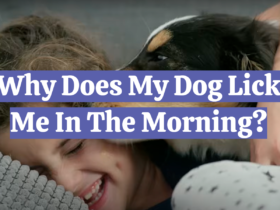

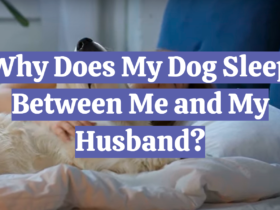
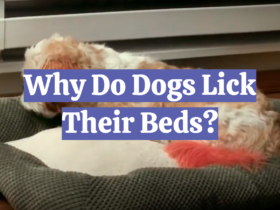
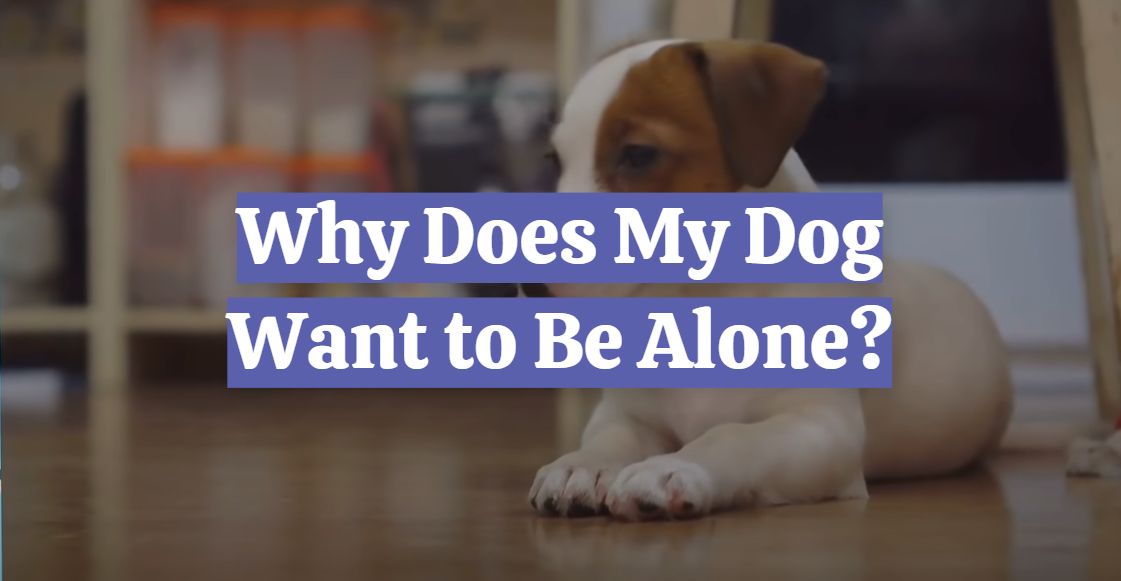



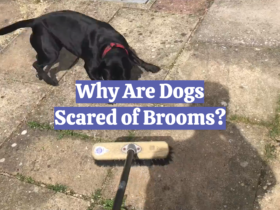
It’s been a perplexing journey trying to understand why my typically sociable dog suddenly wants to be alone. After consulting with a vet, I learned that dogs, like humans, can experience moments of solitude for various reasons. Sometimes, they might be feeling unwell or in pain, and the instinct to isolate themselves is their way of coping. In my case, a subtle change in behavior prompted a vet visit, revealing an underlying health issue. Offering a quiet space and observing my dog’s cues during these times has become crucial for his well-being.
Seeing my dog seeking solitude left me puzzled until I realized it coincided with certain environmental changes. Dogs can be sensitive to shifts in their surroundings, and my dog’s desire to be alone seemed linked to moments of stress or anxiety. Whether it’s a new addition to the family, a change in routine, or even loud noises, dogs may retreat to a quiet space to find comfort. Creating a safe and secluded area for my dog during these transitional periods has allowed him to navigate changes more comfortably.
I’ve come to realize that my dog’s desire for solitude is not always a cause for concern but rather a natural aspect of his temperament. Just like people, dogs have varying personalities, and some may be more introverted or independent. In my case, my dog occasionally seeks alone time simply because he values moments of introspection. Understanding and respecting his need for occasional solitude has deepened our bond, as I’ve learned to provide the space he desires without unnecessary worry.
My dog’s sudden preference for alone time raised concerns, but after observing his behavior more closely, I realized it was linked to aging. Older dogs, much like older humans, can experience a decline in energy and may need more rest. My dog’s moments of solitude were his way of conserving energy and taking necessary breaks. Adjusting our routine to accommodate his pace and providing a cozy, quiet spot for him to retreat to has allowed him to age gracefully while still enjoying moments of social interaction.
The mystery of my dog wanting to be alone unfolded when I started noticing a pattern during hot weather. Dogs can be sensitive to temperature changes, and my pup seemed to prefer the cooler, shaded areas of our home during warmer days. Seeking solitude in a cooler environment is his way of staying comfortable and avoiding overheating. Understanding this seasonal behavior has led me to create cool, comfortable spots for him to retreat to, ensuring he stays content and relaxed during the heat.
I’ve been grappling with the mystery of my dog’s desire for solitude, and it took a bit of investigation to uncover the connection with recent changes in our household dynamics. A new addition, whether it’s a family member or another pet, can disrupt the established routine. My dog’s need for alone time seems to be his way of adjusting to the new dynamics and finding his own space amid the changes. Creating a quiet retreat for him during these adjustments has allowed him to adapt at his own pace and eased his transition into the evolving family dynamic.
Unraveling the mystery behind my dog’s occasional desire for solitude led me to explore the possibility of sensory overload. Dogs, with their acute senses, can become overwhelmed by stimuli like loud noises, strong odors, or a bustling environment. During such moments, my dog retreats to a quiet corner, seeking solace away from the sensory overload. Recognizing these triggers and providing a calm, dimly lit space for him to decompress has become essential in maintaining his well-being and ensuring he feels secure in our home.
My once social dog’s newfound preference for alone time had me puzzled until I considered the role of age-related changes in his behavior. Dogs, like humans, may experience shifts in their preferences as they age. In my dog’s case, a bit of arthritis was affecting his joints, and solitude became a way for him to manage discomfort. Incorporating joint-friendly adjustments, like a softer bed and shorter, more comfortable walks, has not only respected his need for solitude but also enhanced his overall comfort in his golden years.
As someone who loves spending quality time with my dog, I was initially taken aback when he started seeking solitude during playtime. It turns out that dogs, much like people, can have introverted tendencies. Sometimes, they need moments to recharge and process the stimuli from their surroundings. Recognizing these signals, I’ve learned to give my dog the space he needs without taking it personally. Now, our play sessions are more enjoyable because they are balanced with moments of quiet introspection for him.
The enigma of my dog’s desire for solitude deepened when I noticed a correlation with weather changes. Dogs can be surprisingly attuned to weather patterns, and my dog’s occasional withdrawal seems to be his response to impending storms or atmospheric pressure changes. Understanding this weather-related behavior has allowed me to be proactive in providing a cozy, secure space for him before the storm hits. It’s become a comforting routine that ensures he feels safe and supported during weather-related anxieties.
My dog’s newfound interest in being alone left me scratching my head until I discovered the influence of his sleep patterns. Dogs, much like humans, have sleep cycles, and sometimes my pup just needs a little extra rest. His retreat to a quiet corner isn’t a sign of withdrawal but rather an indication that he’s catching up on some much-needed sleep. Understanding the importance of quality rest in his overall well-being has made me appreciate these solo moments as a crucial part of his daily routine.
Navigating my dog’s desire for solitude uncovered a surprising connection with his moods. Dogs, just like us, can have off days or moments of introspection. My pup’s occasional withdrawal seems to align with his mood, and providing him with a quiet space allows him to recharge emotionally. Recognizing and respecting his need for emotional space has strengthened our bond, and I’ve come to understand that these moments contribute to his overall mental well-being.
The mystery of my dog’s desire for solitude unraveled when I considered the possibility of overstimulation during play. Dogs, especially those with high energy levels, may need breaks during play sessions to avoid exhaustion or frustration. I noticed that my dog’s solo moments often followed intense play, suggesting that he values a balance between social interaction and relaxation. Adapting our play routine to include short breaks has made our playtime more enjoyable, ensuring he stays enthusiastic without feeling overwhelmed.
Exploring my dog’s inclination for solitude shed light on the influence of his environment. Changes in temperature, particularly during hot weather, seemed to prompt his desire for a cool, quiet retreat. Dogs can be sensitive to temperature fluctuations, and my dog’s preference for solitude during warmer days is his way of staying comfortable. Ensuring he has access to shaded areas and cool spots indoors has become a priority, allowing him to regulate his body temperature and enjoy his solitude without discomfort.
Decoding my dog’s solo moments led me to consider the impact of recent changes in our daily routine. Dogs thrive on routine, and alterations can sometimes lead to a need for temporary solitude as they adapt. Whether it’s a change in feeding times or variations in our walking schedule, my dog seems to retreat briefly to process and adjust. Acknowledging the importance of a consistent routine has not only reduced his occasional desire for solitude but has also contributed to a more harmonious and predictable daily life for both of us.